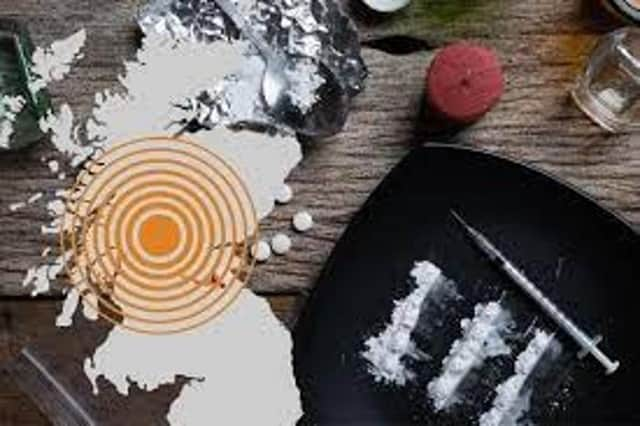Drug death crisis: New opioids banned by the UK Government to tackling spiralling numbers


Fifteen new synthetic opioids and three stimulants have now been banned by the UK Government in a bid to tackle spiralling drug deaths.
This comes after the latest drug death statistics showed the number of suspected drug deaths in Scotland rose by 10 per cent last year.
Advertisement
Hide AdAdvertisement
Hide AdThere were 1,197 suspected drug deaths between January and December 2023, which is 105 more than the same period in 2022.
However as of Wednesday these 15 opioids, which have been described as significantly more dangerous than heroin, have been made Class A drugs under the Misuse of Drugs Act 1971.
Home Secretary James Cleverly said: “We are highly alert to the threat from synthetic drugs and have been taking a range of preventative action, learning from experiences around the globe, to keep these vile drugs off our streets.
“Our plan is working - the overall quantities of synthetic opioids reaching the UK remains lower than other countries, but we are not complacent.
“Placing these toxic drugs under the strictest controls sends a clear message that the consequences for peddling them will be severe.”
This new classification means anyone caught supplying these substances could face tough penalties, including life in prison and an unlimited fine.
Similarly those caught in possession of these drugs could face up to seven years in prison.
Get the inside track on what’s happening in the world of Scottish politics with our daily newsletter
The UK Government says it took this decision as the substances are highly addictive and pose a higher risk of accidental overdose.
Advertisement
Hide AdAdvertisement
Hide AdThe drugs included in this are metonitazene, protonitazene, isotonitazene, butonitazene, flunitazene, metodesinitazene (metazene), etodesnitazene (etazene), n-pyrrolidino-etonitazene (etonitazepyne), n-piperidinyl-etonitazene (etonitazaepipne), n-pyrrolidino protonitazene, ethyleneoxynitazene, n-desethyl protonitazene, n-desethylisotonitazene, n-desthyl-etonitazene and brorphine.
Five other drugs, including three stimulants with similar effects to ketamine, have also been made Class B drugs as they can lead to complications such as seizures and liver failure.
Comments
Want to join the conversation? Please or to comment on this article.